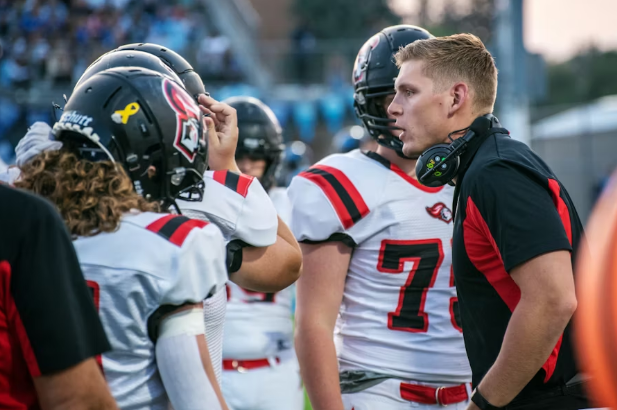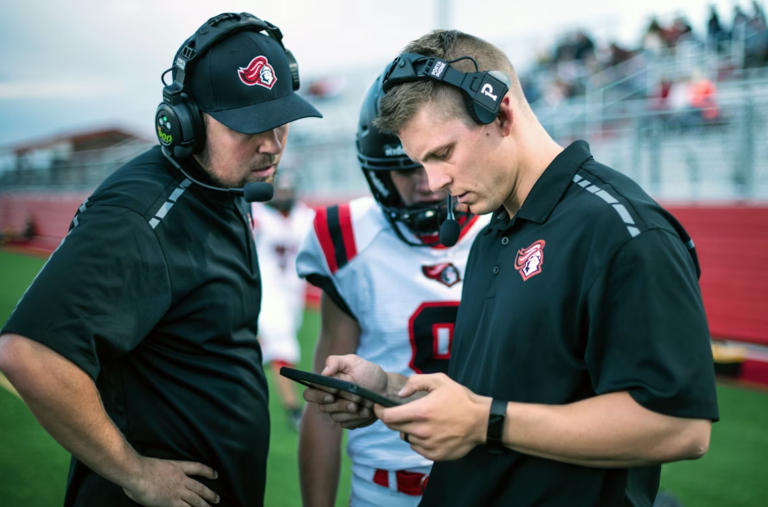
Each NFL season presents a unique set of challenges, both obvious and hidden. Two critical factors that often go unnoticed are coaching quality and schedule difficulty. Analysts tend to focus on talent, trades, and roster changes, but less attention is given to how coaching staffs manage the grueling demands of the season.
In 2025, major coaching changes and the arrival of first-time head coaches have intensified the pressure. Coaching decisions influence how well teams endure difficult stretches. Who is on the sidelines is pivotal in shaping a team’s ability to adapt, compete, and ultimately survive the season.
The Weight of Experience in Adversity
NFL schedules are unforgiving. Even a short stretch against elite opponents can send teams spiraling. That’s where coaching stability becomes critical.
Teams with proven coaching staffs, like the 49ers under Kyle Shanahan or the Chiefs led by Andy Reid, aren’t just navigating difficult slates. They’re managing to consistently compete deep into the postseason. That’s a big reason why these teams often outperform expectations when it comes to NFL win totals.
These coaches thrive under pressure, not because they have the best players, but because they’re architects of adaptable systems. Shanahan, for instance, can scheme around injuries, while Reid consistently evolves his offense to match the personnel he has on hand. Against brutal schedules, that adaptability often turns close losses into statement wins.
First-Time Head Coaches and Steep Learning Curves
On the other end, first-year head coaches entering a season with a tough schedule often find themselves underwater early.
Consider Jacksonville’s Liam Coen. Despite high praise for his offensive design, the lack of NFL experience across his staff creates a significant risk. When the Jaguars inevitably hit a wall against playoff-bound teams, their ability to adjust midseason will be tested.
Similarly, Aaron Glenn’s staff with the Jets is full of promise but unproven. Engstrand, their offensive coordinator, must retool an entire system around Justin Fields. This assignment would be demanding even for a veteran playcaller. Against top-tier defenses, the growing pains could be painful and public.
Elite Playcallers Cushion the Schedule’s Impact
There’s a reason Kevin O’Connell’s Vikings top the 2025 coaching rankings. He isn’t just a master of schemes. He’s one of the rare coaches who elevate the play of every quarterback he works with. Last season, Sam Darnold thrived in an aggressive, vertical offense under O’Connell’s guidance, despite lacking a deep resume of success.
That’s what elite coaching looks like when schedules get rough. It creates wins even when talent is thin.
Mike McDaniel in Miami offers a more nuanced case. While his offense is undeniably creative, its performance collapses without Tua Tagovailoa. That’s a critical limitation. When McDaniel faces top defenses or loses his starter, the Dolphins falter.
Current NFL betting data and trends reflect this volatility, especially in seasons where the schedule stacks late divisional games and cold-weather contests. This vulnerability often shows up in December when playoff hopes hang in the balance.
Coordinators Matter More Than You Think
One layer deeper, offensive and defensive coordinators often tilt the outcome of games decided by just a few plays.
The Bills’ recent playoff heartbreaks aren’t a reflection of poor coaching in general—Sean McDermott remains solid—but of repeated failures in defensive game-planning against elite offenses. Buffalo has often looked unprepared in January because their staff hasn’t adapted fast enough.
Meanwhile, the Rams’ Chris Shula, despite overseeing a statistically weak defense, designed clever coverage systems that masked a lack of talent. Los Angeles didn’t field a top-tier defense on paper, but Shula schemed pressure packages that confused opposing quarterbacks.
Schedule Difficulty Exposes Coaching Flaws
Brian Schottenheimer’s promotion in Dallas has drawn raised eyebrows across the league. His 14-year record as a playcaller shows average production at best. With a tough NFC East schedule and elite pass rushers on the docket, the Cowboys’ offense needs more than safe, run-first schemes to compete.
The schedule will not wait for Schottenheimer to evolve. If he doesn’t, Dallas risks regressing in a division full of aggressive defensive minds.
The Saints’ new trio, including Kellen Moore, Doug Nussmeier, and Brandon Staley, is another example of a staff mismatched to their challenge. Moore’s offense traditionally needs elite offensive line play, something the Saints can’t guarantee.
Staley’s conservative, two-deep defenses might be fundamentally sound, but they’re unlikely to hold up against run-heavy attacks stacked across their early-season slate. That mismatch, when paired with an intense opening month, could doom New Orleans by October.
Climbing the Ranks Through Tough Stretches
When it comes to shifting perceptions, nothing changes a coaching staff’s narrative like surviving the NFL’s gauntlet. That’s why teams like the Raiders, now led by Pete Carroll and Chip Kelly, are being watched closely.
Carroll’s ability to develop players quickly and adjust schematically has historically thrived under pressure. If the Raiders face a top-loaded schedule early and still hang tough, expect the coaching ranking to rise fast.
Even mid-tier staffs like those in Indianapolis and Chicago could gain respect quickly if they start hot. Ben Johnson’s system-friendly approach with the Bears is particularly suited to helping young quarterbacks survive tough games. If the defense, now helmed by Dennis Allen, holds up in key matchups, Chicago’s staff might outpace expectations by November.
Coaching Will Define the 2025 Season
With so many teams undergoing coordinator and head coach changes this year, the NFL is entering a season where coaching volatility could reshape the standings. Teams with tough stretches early, such as the Panthers, Jets, and Titans, will be under the microscope. The ones who manage to survive those first six weeks without imploding likely won’t do so because of luck, but because of leadership.
Schedule difficulty doesn’t just test players. It tests systems, culture, and decision-making under fire. The great coaches know how to ride the turbulence. The others get exposed. In 2025, the league will be watching how coaching staffs rise or fall under pressure.


